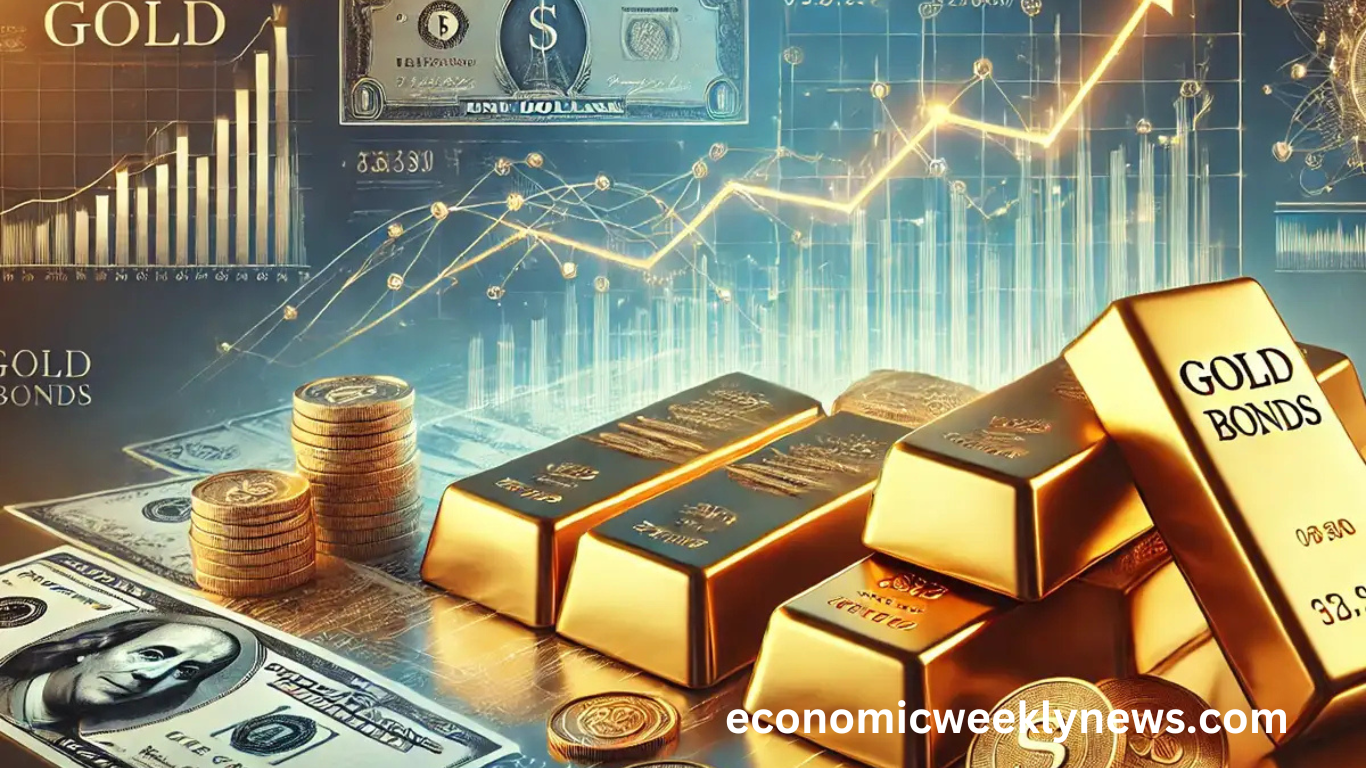Gold prices have reached a record high as investors seek safe-haven assets amid escalating trade tensions. The ongoing global economic uncertainty has fueled demand for gold, pushing prices to unprecedented levels.
Trade War Concerns Drive Demand for Safe-Haven Assets
Concerns over the intensifying trade war between major economies have heightened market volatility, prompting investors to turn to gold as a hedge against economic instability. The metal has historically been a preferred choice during financial turmoil, and the latest geopolitical tensions have reinforced this trend.
Central Banks Increase Gold Reserves
Several central banks have bolstered their gold reserves in response to global economic concerns. This strategic move aims to mitigate risks associated with currency fluctuations and economic downturns. The increased demand from central banks has contributed to the surge in gold prices.
Weakened Dollar Boosts Gold Prices
A weakening U.S. dollar has further fueled the rally in gold prices. As the value of the dollar declines, gold becomes more attractive to international investors, leading to increased demand. Analysts suggest that continued depreciation of the dollar could sustain the upward momentum of gold prices.
Stock Market Volatility and Inflation Fears
The stock market has experienced significant fluctuations due to uncertainties surrounding trade negotiations. Inflation concerns have also played a role in driving gold prices higher, as investors seek protection against the eroding purchasing power of fiat currencies.
Outlook for Gold Prices
Experts predict that gold prices may continue to rise if trade tensions persist and economic conditions remain uncertain. Some analysts anticipate further gains as geopolitical risks and monetary policies shape market dynamics. Investors are closely monitoring developments to assess potential opportunities in the gold market.
Global Economic Impact
The surge in gold prices reflects broader economic challenges that affect both developed and emerging markets. Countries reliant on commodity exports and trade-dependent economies may experience significant repercussions. Governments and policymakers are evaluating strategies to address economic disruptions and maintain stability.
Frequently Asked Questions
Why have gold prices reached an all-time high?
Gold prices have surged due to trade war concerns, economic uncertainty, and increased demand for safe-haven assets.
How does the trade war impact gold prices?
Trade conflicts create market instability, leading investors to seek gold as a hedge against potential losses.
What role do central banks play in rising gold prices?
Central banks increasing gold reserves contribute to heightened demand, further driving prices upward.
How does a weakening U.S. dollar affect gold prices?
A weaker dollar makes gold more attractive to foreign investors, leading to increased buying and higher prices.
Will gold prices continue to rise?
Experts believe gold prices may remain strong if economic uncertainties and geopolitical tensions persist.
What is the relationship between inflation and gold prices?
Gold is often used as a hedge against inflation, as its value tends to rise when currency values decline.
How does stock market volatility influence gold prices?
Market fluctuations drive investors toward stable assets like gold, increasing its demand and price.
Should investors buy gold now?
Investment decisions should be based on individual risk tolerance and market analysis, but gold remains a strong hedge in uncertain times.
Conclusion
Gold prices have soared to record highs amid trade war concerns, economic instability, and currency fluctuations. Investors and central banks continue to seek gold as a safeguard against financial uncertainty. With stock market volatility and inflation fears on the rise, gold remains a crucial asset for hedging risks. Moving forward, geopolitical tensions and economic conditions will play a vital role in shaping gold’s price trajectory.


